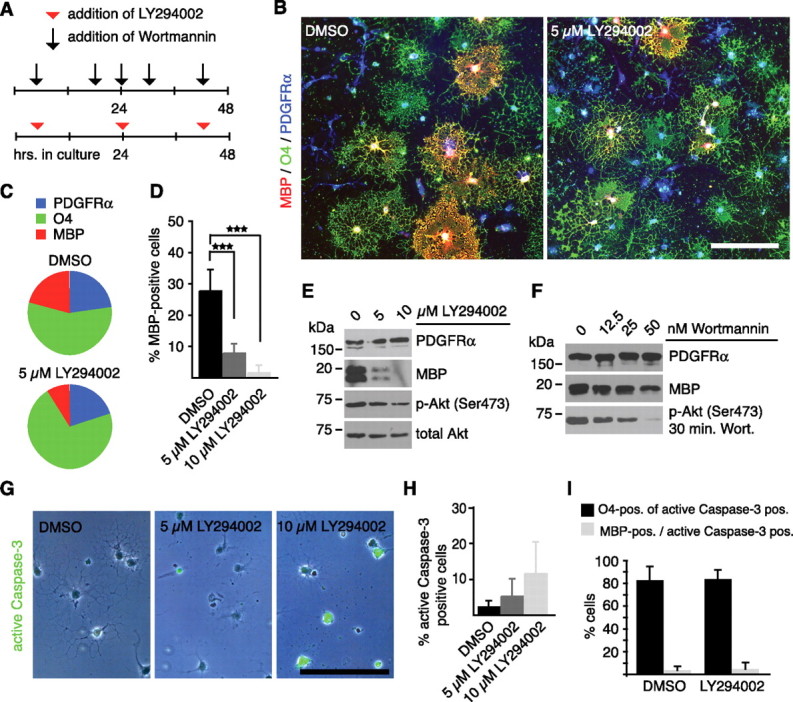Figure 4.

Impaired PI3K signaling reduces MBP expression in oligodendrocytes. A, Oligodendrocytes were cultured for two d in the presence or absence of the PI3K inhibitors wortmannin or LY294002 as indicated. B, Representative photomicrographs of control- and LY294002-treated oligodendrocyte cultures triple stained for PDGFRα, O4, and MBP. C, The pie chart shows that LY294002 treatment reduces the MBP-positive but not the O4- or PDGFRα-expressing cell fraction (n = 3). D, The diagram reveals the significant reduction of MBP-expressing cells after treatment with 5 and 10 μm LY294002 (***p < 0.001; n = 4). E, Immunoblotting confirms reduced MBP expression resulting from LY294002 treatment. Note that levels of phosphorylated Akt were reduced but not completely suppressed. Total Akt serves as a loading control. F, Immunoblotting shows that wortmannin treatment similarly reduces MBP in a dose-dependent fashion. G, H, Caspase-3 staining and subsequent quantification reveals that LY294002 increased the number of apoptotic cells in a dose-dependent fashion (p = 0.3 at 5 μm; p = 0.09 at 10 μm; n = 4). Data are expressed as mean ± SD. I, The quantification shows that caspase-3-expressing cells are present in equal proportions in the O4- and MBP-expressing cell fraction in control and LY294002-treated cultures (n = 3). Data are expressed as mean ± SD. Scale bars, 150 μm.
